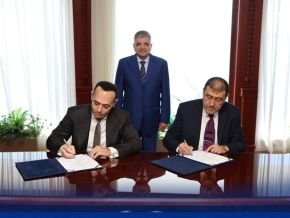- Suez Canal signs $2B+ deal for Ain Sokhna petrochemical complex
- Project aims to boost exports, jobs, and industrial diversification
- SCZone attracted $8.3B in investment across 272 projects since 2022
The Suez Canal Authority (SCA) signed a strategic partnership on Oct. 22 with Egyptian firm Anchorage Investments to build a petrochemical complex in Ain Sokhna, in the Suez Canal Economic Zone (SCZone).
The first phase will focus on producing polypropylene (PP) from propane, with hydrogen as a byproduct, and will require more than $2 billion in investment, the SCA said.
The second phase, estimated to cost $4.5 billion, will expand production to other petrochemicals and add supporting industrial units geared toward exports and sustainability. The entire complex is expected to create over 2,500 direct and indirect jobs and strengthen technical training.
SCA Chairman Admiral Ossama Rabie said the public-private partnership aligns with the authority’s plan to diversify revenue, optimize asset use, and boost Egypt’s foreign currency inflows. Anchorage founder Ahmed Moharram described the project as “up to international standards” and said it would bolster Egypt’s industrial diversification and global competitiveness.
Egypt’s petrochemical industry is expanding, supported by infrastructure upgrades, natural gas development, and rising strategic investment. In February, a $7 billion public-private deal was signed to build a petrochemical complex in Al-Alamein.
These initiatives aim to make Egypt a regional energy hub, cut imports, and increase exports of higher-value products. Petroleum products accounted for 29.3% of total exports in July 2025, according to the national statistics agency CAPMAS.
The SCZone, positioned at the crossroads of Africa, Asia, and Europe, remains a key logistics hub. From fiscal year 2022/23 through March 2025, it attracted $8.3 billion across 272 projects, reinforcing its goal of becoming a global industrial and logistics center through infrastructure investment and a better business climate.
Charlène N’dimon







